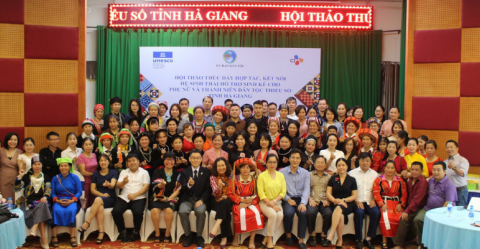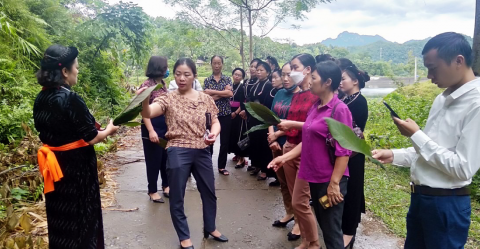
UNESCO Malala Fund for Girls’ Right to Education
girls-education-mali-copyright-un-marco-dormino-drupal.jpg

The brutal assassination attempt made against Pakistani teenager and activist for girls’ education Malala Yousafzai gave birth to the UNESCO Malala Fund for Girls’ Right to Education. The fund was established in 2012 to expand girls’ access to quality and gender-responsive education and ensure safe learning environments, especially in countries affected by conflict and disaster. The Islamic Republic of Pakistan initially committed 10 million USD to the Fund, and since 2014 the CJ Group is another major contributor to the Fund, along with other supporters.
Fund objectives
The Fund supports the implementation of holistic programmes which aim to:
- Expand access to education for girls and women, especially those hardest to reach and affected by conflict and disaster
- Improve the quality and relevance of education, ensuring that content, teaching practices, learning processes and environments are gender-sensitive
- Strengthen policy and capacity to ensure safe learning environments
Fund highlights
- Cambodia
UNESCO is building the literacy skills of 1,760 young female garment workers in 22 factories in Phnom Penh and Siem Reap to improve their quality of life. Training materials have been developed to enable the sustainable implementation of literacy programmes in factory settings throughout Cambodia.
- Educational and social development of garment factory workers, programme details, 2018
- Egypt
UNESCO is enhancing the literacy skills of 600 women and girls and building their life skills for health, livelihoods and citizenship engagement through 12 Community Learning Centres (CLCs). A Training of Trainers programme has been piloted and finalized with 124 literacy facilitators from six governorates.
- Mauritania
UNESCO is expanding education and skills development opportunities for 300 girls and women through CLCs, while promoting the reintegration of out-of-school learners in formal education to improve their earning power and socio-economic status.
- Mozambique
UNESCO is enhancing family literacy and empowering parents and caregivers to support child learning and skills development. More than 50 technicians (42 per cent female) have been trained in family literacy and over 580 beneficiaries (95 per cent female) and 18 literacy teachers were selected. Thirteen classes implement regular literacy programmes, benefiting around 475 learners (71 per cent female).
- Nepal (Project I)
UNESCO is developing the capacities of more than 160 head teachers in gender-responsive budgeting, leadership and school management and empowering nearly 100 girls and women through locally-relevant income-generating skills and links to job placement programmes.
- Nepal (Project II)
UNESCO is enhancing the quality and relevance of education for girls in the six districts most affected by the earthquake in Nepal by training 600 education providers in gender-responsive teaching, strengthening the capacity of 100 schools and CLCs in counselling for girls, and training over 1,000 adolescent girls and women in income-generating skills.
- Pakistan
Since 2014, UNESCO’s Girls’ Right to Education Programme supports Pakistan’s efforts to increase access and improve the quality of primary education for 40,000 girls in nine national and provincial/areas through capacity-building and targeted interventions at institutional and community level, particularly in marginalized communities. 60,000 community members are expected to become advocates for girls’ education. In addition, 600 teachers will be trained in multi-grade teaching and activity-based learning and 35 district education officers will enhance their capacity in educational leadership and management.
- Girls’ Right to Education Programme in Pakistan programme brochure, 2018
- Tanzania
UNESCO is increasing safe spaces for learning, promoting girls’ empowerment, and addressing community resistance to girls’ education. Over 5,000 girls were reached through the creation of 60 safe spaces, and more than 400 community, religious and traditional leaders identified key issues impacting on girls’ education through consultations. Twenty leaders (including Imams) have been identified as champions to address issues such as child marriage and early pregnancy. Forty headmasters, teachers and education district officials undertook gender-responsive pedagogy training to promote girls participation.
- Viet Nam
UNESCO is mainstreaming gender in education planning, management and delivery, and supporting gender norms changes through media interventions. An Action Plan for Gender Equality in the Education Sector for the period 2016-2020 has been developed and approved by the Ministry of Education and Training. Fifty media professionals (8 male and 42 female) from 18 media agencies gained skills to better communicate on gender equality issues and 49 secondary students (29 girls and 20 boys) increased their capacity as young journalists to report on gender-related issues. Curriculum and textbook developers (34 male and 70 female) built their capacity to mainstream gender in textbook and curriculum development.
- Nigeria
UNESCO is promoting safe school environments and peace in settings affected by violent conflict and school abductions. More than 100 primary, lower, and upper secondary schools benefited from workshops on safety measures and received educational materials including 2,000 Safe School Kits.
- Guatemala
UNESCO is expanding the education of more than 500 indigenous girls, adolescents and young women in the western highlands of Guatemala. The project will also have broader long-term benefits, reaching 40,000 schools, over 1 million Guatemalan female students, and 650,000 indigenous adolescent girls and young women across Guatemala.
Contact
To learn more or to contribute to the UNESCO Malala Fund for Girls’ Right to Education, please contact us at: gender.ed@unesco.org.
News
- 1 of 20
- next ›









